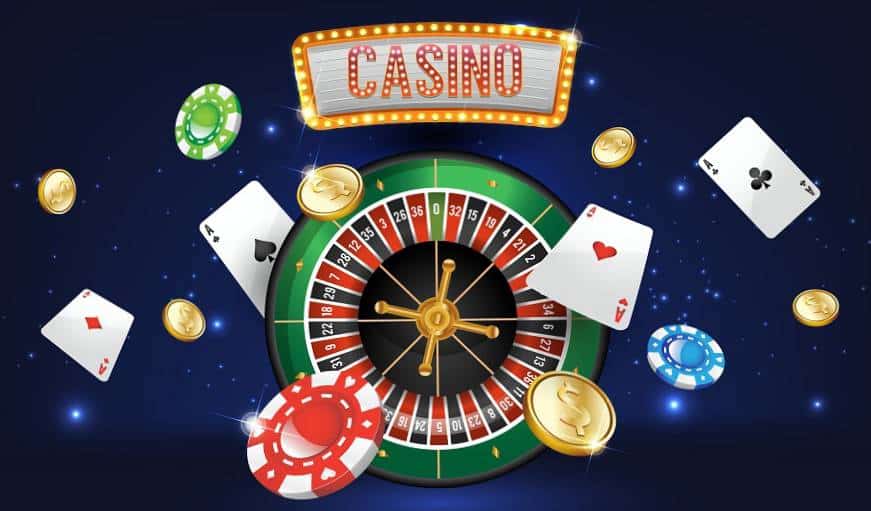
Casino activities have fascinated players for centuries, drawing them into a realm of excitement, fortune, and fortune. From the sparkling lights of video slots to the tactical action of poker tables, these games offer a distinct combination of entertainment and exposure. However, beneath the shiny exterior of this glitz and glamour lies a intricate connection of calculations that shapes every outcome and action made within the gaming hall.
Grasping this link between gambling games and numerical principles not only enhances the gambling experience but may also help gamblers make knowledgeable decisions. Whether you are a recreational player or a avid follower, recognizing the math concepts at play can offer important insights into probability, probabilities, and strategies, eventually shaping how one approaches these chance games.
Arithmetic Probability in Gambling
In the realm of gambling games, statistical probability plays a vital role in assessing outcomes and informing gambler decisions. Every game has a unique set of regulations and a particular probability model that shapes its mechanics. For example, in activities like roulette, players must understand the chances of choosing a specific digit or shade. The likelihood of specific events happening can be computed, and this knowledge can greatly influence wagering strategies.
Gambers also need to be informed of the casino advantage, which is the mathematical advantage that casinos hold over players in the long term. This advantage differs across various games. In blackjack, skilled players can use tactics to minimize the casino edge to as low as one percent, while in games like slots, the casino edge can be substantially larger. Comprehending the casino edge allows gamblers to make wise decisions about which activities to participate in and how much to wager.
Moreover, likelihood is essential in the principle of risk versus gain in betting. Every wager carries a particular danger factor, and players must evaluate the possible return against that risk. Games like the poker game require players to not only assess the odds of their personal showing winning but also to assess the likelihoods of their opponents’ showings. By applying statistical concepts to their strategy, gamblers can boost their chances of winning and participate more strategically in the exciting realm of gambling activities.
Expected Worth in Gambling Activities
When talking about casino games, one of the fundamental concepts rooted in mathematics is the expected value. This numerical metric assists gamblers understand the potential outcomes of their bets over time. In basic terms, anticipated value (EV) determines the mean amount a gambler can anticipate to win or suffer per bet if they were to play the game many times. Each game has its unique EV, influenced by the probabilities and the casino advantage, which signifies the benefit that the casino holds.
For example, think of a activity like the roulette game. The expected value can be calculated based on the specific wager placed. If a gambler bets on a single number, the return is 35 to 1, but the actual chances of success that wager are 1 in 37 (in European the roulette game). This results in a negative expected worth, showing that, on average, gamblers will lose money over time when playing this type of bet. Grasping this concept allows players to make better educated choices about which activities and wagers may be more favorable.
Moreover, the exploration of expected value can lead to better money management. Gamblers who comprehend the mathematics behind their games are often able to set practical goals. By acknowledging their potential losses and profits, they can modify their playing strategies accordingly, which may enhance their total gaming experience. As a consequence, anticipated worth serves as a crucial resource for both novice and experienced gamblers to navigate the often unpredictable nature of gambling games.
Tactics and Probabilities: The Arithmetic Behind Success
In gambling games, grasping the odds is essential for players looking to enhance their chances of winning. Each game has its own unique set of probabilities that dictate winning outcomes, and these statistics are often found in the gaming rules or reward charts. For case, in games like blackjack, participants can improve their probabilities through methods such as counting cards, which is based on arithmetic concepts to gain an upper hand over the house. By educating themselves with the probabilities, gamblers can make more informed choices on when to bet and when to fold.
Moreover, the concept of expected value has a critical function in casino strategies. Expected value determines the typical outcome of a bet over time, allowing participants to evaluate whether a particular bet is justifiable taking. For instance, video slots have a set payout percentage, which can show the expected payout a gambler can look for on their bets. Bj88 By choosing games with better expected values, players can lessen the house edge, maximizing their future winnings in the over time.
Finally, successful players often adopt a combination of luck and mathematical strategy to boost their gaming experience. While chance is unpredictable, managing a betting strategy based on math insights can lead to more favorable outcomes. By making use of techniques such as bankroll management and choosing games, players can apply math to handle the volatile nature of gambling activities, making the most of their investments and investments at the gaming tables.
